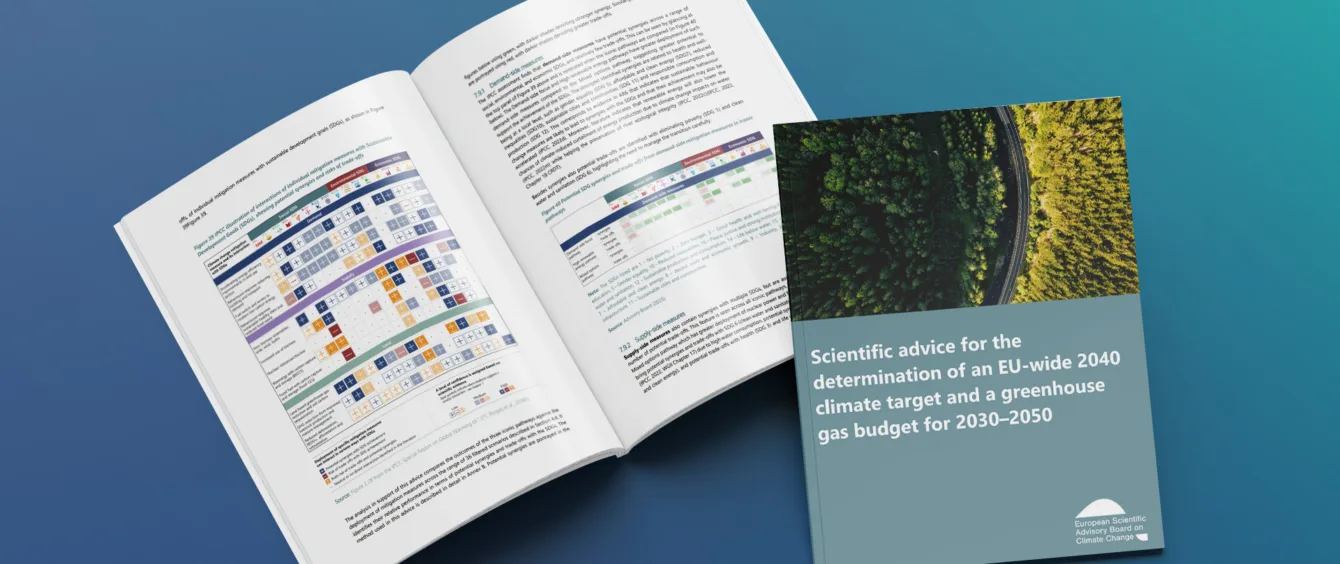In a report released in June, the EU European Scientific Advisory Board on Climate Change (ESABCC) recommends that the EU cut its emissions by 90-95% by 2040, in order to keep its greenhouse gas (GHG) emissions budget within a limit of 11-14 gigatons of CO2 equivalent between 2030 and 2050.
The figures are for net domestic GHG emissions, including those from intra-EU air and maritime travel.
In particular, the report says that “transition policies need to pay specific attention to the short-term scale-up of solar, wind and hydrogen technologies, the sustainability of bioenergy supply and attainable levels of carbon removals.”
The ESABCC is a relatively new organisation. It is an independent, scientific advisory board set up under the European Climate Law, which entered into force in July 2021.
The board is designed to serve as a point of reference for the EU on climate science. Given the EU’s commitment to a science-based approach to climate change, its advice and opinions are expected to carry considerable weight in the formation of EU policy.
Under the European Climate Law, the EU is mandated to adopt an intermediate GHG reduction target for 2040. It currently has a target of reducing GHG emissions by 55% by 2030, compared with 1990 levels and of reaching net zero emissions by 2050.
Key actions to be taken
In its recommendation for a 2040 target, the ESABCC says that there are different pathways to achieving climate neutrality, but that some measures are common to all.
These include the near-to-complete decarbonisation of the EU power sector by 2040. This will require a complete phase out of coal-fired electricity generation by 2030 and of unabated gas-fired generation by 2040. In addition, there needs to be large-scale deployment of wind, solar and hydro to compensate and a “substantial decrease” in fossil fuel imports.
Final energy consumption also needs to fall by between 21-42% by 2040, compared with 2019 levels, key components of which will be the electrification of transport and energy efficiency. In addition, the report says a rapid scale-up in carbon removals is required in all scenarios, despite the risks and challenges this presents.
Renewable power is the way forward
On a sector specific basis, oil imports fall by between 50-100% by 2040, while natural gas imports decline by between 35-100%. The range of possibilities reflects the 36 ‘filtered’ scenarios considered by the report as the most feasible and fair.
The report is clear that “electrification is a key feature of all assessed pathways”. By 2040, electricity needs to account for 42% of final energy demand, about double today’s level.
By 2040, non-biomass renewables – wind, solar and hydro – account for 70-91% of electricity generation in the EU. In 30 of the ESABCC’s 36 scenarios, this proportion is above 85%. The outlook for nuclear power is much more uncertain, spanning a range of 3-23% of electricity supply.
Science-based targets have been at the heart of RWE’s approach to climate change for some time. The company has committed to achieving a 50% reduction in specific GHG emissions (Scope 1 and 2) by 2030, compared with 2019, and aims to reduce Scope 3 emissions by 30%.
These company-specific targets were reviewed by the Science Based Targets initiative (SBTi), an independent initiative of the WWF, UN Global Compact, the World Resources Institute and the not-for-profit organisation CDP. Based on climate science, the SBTi attested that RWE’s targets are in line with the Paris Agreement on Climate Change.
More information on RWE’s science-based emissions targets can be found here.
